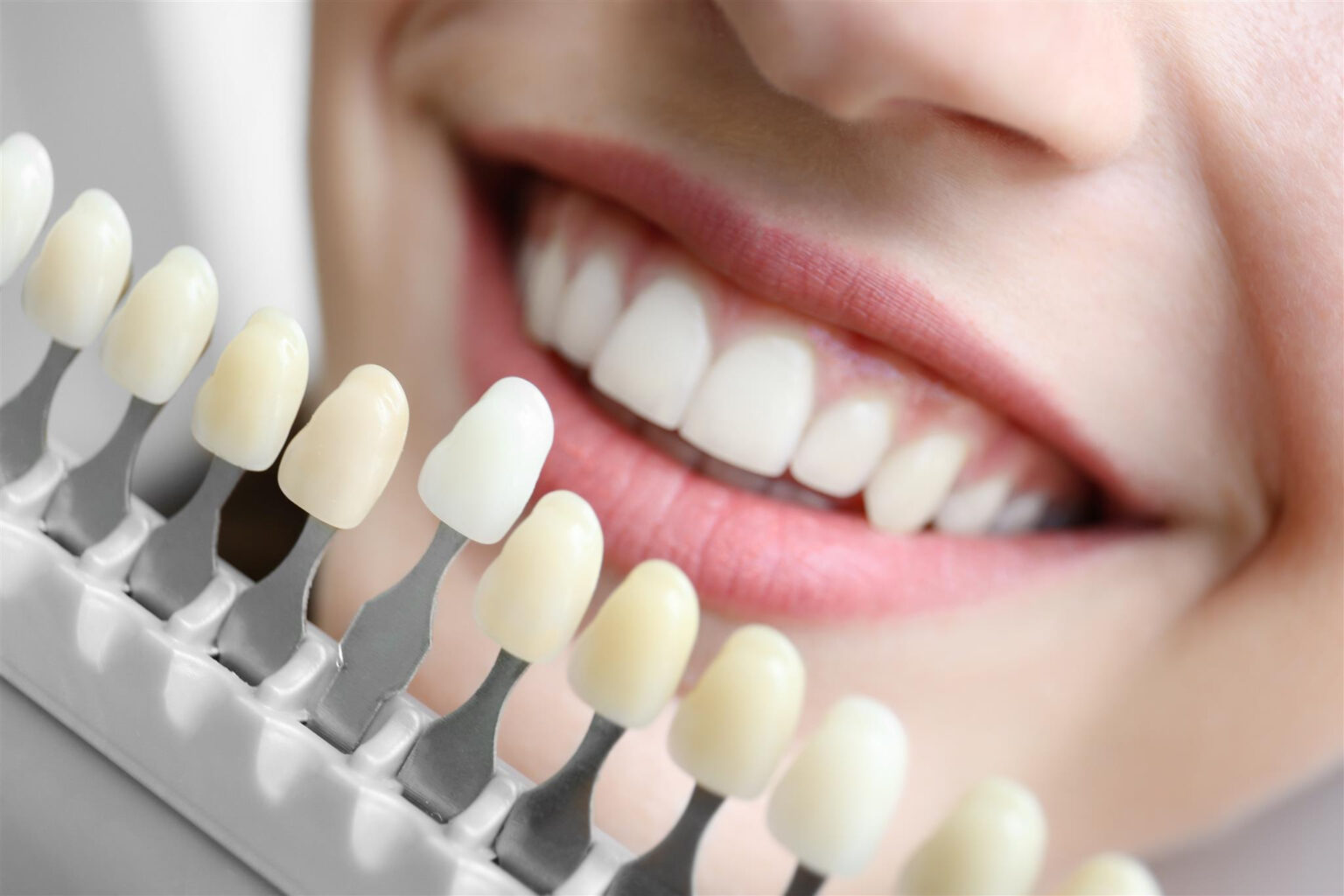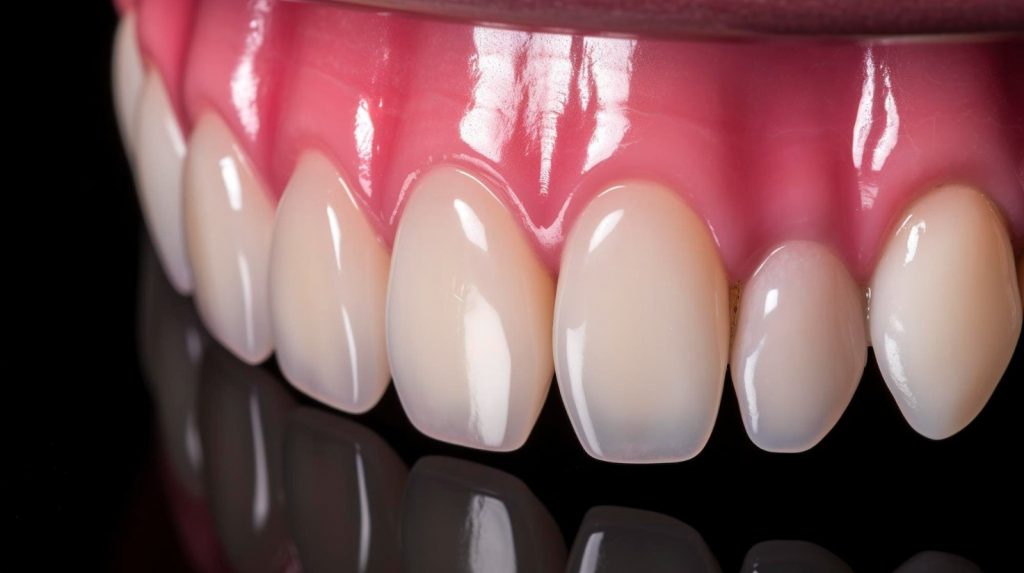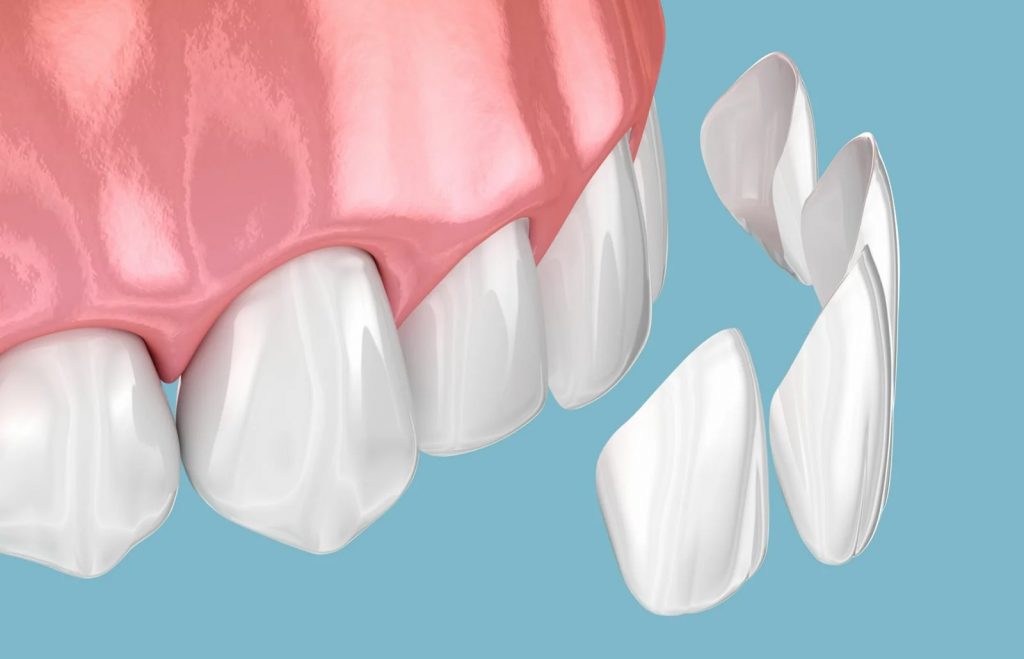
Veneers are a popular way to improve smiles by covering imperfections and enhancing the look of teeth. They offer a durable yet non-permanent solution, with various types and care routines that impact their longevity. If you’re considering veneers, understanding their types, lifespan, maintenance needs, and replacement signs will help you make an informed decision for a lasting, bright smile.
This article will help you discover key details on the different veneer options, their expected longevity, factors that affect their lifespan, tips for extending durability, and advice on selecting a reputable provider.
What Are Veneers?
Veneers are ultra-thin, custom-made shells designed to cover the front surface of teeth, enhancing their appearance by creating a more uniform and aesthetically pleasing smile. Made from materials like porcelain or composite resin, veneers are carefully crafted to mimic the natural look and feel of real teeth. They are an effective solution for addressing a variety of cosmetic dental concerns, such as discoloration, stains, chips, cracks, uneven spacing, and mild misalignment.
The application process involves gently preparing the tooth surface to ensure a secure fit. Porcelain veneers are especially popular for their stain resistance and natural, enamel-like appearance. Composite resin veneers are a more budget-friendly option, often completed in fewer visits while still achieving great results.
Types of Veneers and Their Expected Lifespan
Veneers primarily come in two types: composite and porcelain. Each has distinct advantages, lifespans, and maintenance requirements.
Composite Veneers
Composite veneers, crafted from resin, are typically applied in a single dental visit. They are more affordable and less invasive than porcelain but have a shorter lifespan, generally lasting 4–8 years. They may stain over time, so maintaining them involves regular dental check-ups and good oral hygiene.

Porcelain Veneers
Porcelain veneers are known for their durability and realistic appearance. Made from high-quality ceramic material, these veneers resist stains better than composite and can last between 10–15 years, with some lasting even longer under optimal care. They are costlier but are often seen as a long-term investment for those seeking a lasting and natural look.

Comparison: Composite vs. Porcelain Veneers
When deciding between composite and porcelain veneers, it’s important to consider factors like budget, durability, and the look you’re aiming to achieve. The table below outlines the key differences to help you find the best option for your smile:
| Factor | Composite Veneers | Porcelain Veneers |
|---|---|---|
| Cost | More affordable upfront but typically require more frequent replacements, potentially increasing long-term costs. | Higher initial cost but offers a long-lasting solution, often making it more cost-effective in the long run. |
| Durability | Less durable than porcelain, more susceptible to wear and staining. Recommended for shorter-term or more budget-conscious needs. | Highly resistant to wear and staining, making them ideal for long-term use and those looking for durability. |
| Appearance | Slightly less life-like; while still effective in enhancing appearance, they lack the same depth and natural translucency as porcelain. | Closely mimic natural teeth with a realistic translucency and gloss, providing a highly natural look suitable for those prioritizing aesthetics. |
Factors Affecting Veneer Lifespan
The lifespan of veneers is influenced by various factors, many of which are within your control, making proper care and lifestyle choices essential for maintaining their durability and appearance over time.
- Oral Hygiene: Daily brushing, flossing, and regular dental cleanings are essential for prolonging the life of veneers.
- Diet: Certain foods and beverages, such as coffee, tea, and red wine, can stain composite veneers and may impact porcelain veneers over time.
- Teeth Grinding: Grinding or clenching can wear down veneers, especially composites. In such cases, dentists often recommend wearing a night guard.
- Lifestyle Choices: Habits like smoking can stain veneers and affect their longevity, particularly with composite veneers.
Extending the Lifespan of Your Veneers
While veneers naturally wear down over time, proper care can maximize their longevity. Here are some essential tips to help keep your veneers looking their best.
Tips for Long-Lasting Veneers
To ensure your veneers stay in great condition for as long as possible, follow these simple yet effective care tips:
| Tip | Why It Matters |
|---|---|
| Regular Check-Ups | Allows your dentist to monitor veneer health and catch potential issues early. |
| Use Soft-Bristled Brushes | Prevents unnecessary wear and damage to the surface of your veneers, maintaining their smooth finish. |
| Opt for Non-Abrasive Toothpaste | Protects veneers from scratches and dullness, especially for composite veneers. |
Avoiding Habits that Damage Veneers
Avoid using your teeth as tools to open packages or bite into hard objects, which can chip or break your veneers. Chewing on hard foods like ice or nuts should be minimized, and if you clench or grind your teeth, a night guard is advisable.
Importance of Oral Hygiene
Maintaining impeccable oral hygiene not only preserves your veneers but also prevents gum disease, which can affect the fit and stability of veneers. Daily flossing and proper brushing techniques help to ensure that veneers remain in good condition, preventing plaque buildup and staining.
Do Veneers Offer a Permanent Solution?
Veneers are designed for durability, but they are not permanent. While porcelain veneers can last over a decade and composite veneers up to 8 years, both types will need replacement over time due to wear, potential discoloration, or changes in the shape of the surrounding teeth.
Proper care and maintenance can significantly extend their lifespan, ensuring they remain functional and aesthetically pleasing for as long as possible. However, it’s important to consult your dentist regularly to monitor their condition and address any issues before they worsen.
Signs You Need to Replace Your Veneers
Veneers can lose their look or function over time. Here are the key signs to watch for:
- Chips or Cracks: Damage to the surface of your veneers that affects their appearance and durability.
- Discoloration: Stains or fading that can’t be fixed with cleaning or polishing.
- Loose Fit or Gaps: Shifting teeth or gum recession may cause veneers to feel loose or sit improperly.
For a detailed examination, check our Veneer Replacement Checklist to see if you need to replace your veneers.
How Often Do Veneers Need To Be Replaced?
Generally, porcelain veneers may require replacement every 10–15 years, while composite veneers typically need replacement every 4–8 years. Longevity depends on individual care habits, oral health, and the type of veneer.
Why Veneers May Need Replacing Sooner Than Expected
In some cases, veneers may need to be replaced sooner due to unforeseen issues. Damage from accidents, gum recession, or improper bonding can lead to a shorter lifespan, requiring earlier replacement to preserve the look and health of your smile.
Grinding your teeth or neglecting proper oral hygiene can also accelerate wear and tear, reducing the longevity of your veneers. Also, consuming highly acidic or abrasive foods and drinks may weaken the connection between the veneers and your teeth, causing them to loosen or detach prematurely.
How to Choose the Right Place for Veneers
Selecting the right dental provider is crucial for achieving natural-looking and long-lasting veneers. Start by looking for clinics with experienced professionals who specialize in cosmetic dentistry. Checking before-and-after photos of their previous work can help you assess the quality and precision of their results.
Reputation matters, so prioritize clinics with strong patient reviews and testimonials that reflect consistent success. Ensure the facility is certified and adheres to strict safety and quality standards. During a consultation, ask about the materials used, the dentist’s experience, and available aftercare services. Transparency about costs and realistic expectations for results are essential for a successful operation.
Cost Comparison: Composite Veneers vs. Porcelain Veneers
Choosing between composite and porcelain veneers often comes down to balancing initial costs with long-term value. The table below highlights the key differences to help you decide which option suits your needs best.
| Feature | Composite Veneers | Porcelain Veneers |
|---|---|---|
| Initial Cost | Lower upfront cost, more budget-friendly. | Higher upfront cost. |
| Durability | Shorter lifespan, may need replacement sooner. | Longer lifespan, more durable over time. |
| Stain Resistance | Prone to staining from food and drinks. | Highly resistant to stains. |
| Maintenance Costs | Requires more frequent replacements. | Fewer replacements needed, reducing long-term costs. |
| Overall Value | Suitable for short-term, low-cost solutions. | Better long-term investment for lasting quality. |
Considering Patient Testimonials and Reviews
Testimonials and reviews give a clear picture of the quality of care and patient satisfaction you can expect. Clinics with consistently positive feedback and proven results are more likely to deliver a reliable and professional veneer experience.
Tina’s Veneer in Turkey Case Study with MCAN Health
Tina’s smile transformation included 8 E-max veneers for her upper teeth and 6 for her lower teeth, designed to match her goals and oral health. She wanted longer teeth and a flawless finish, all while keeping her natural tooth structure intact. With durable E-max veneers, she achieved a stunning, natural-looking result with minimal invasiveness.

Many MCAN Health patients have shared their stories and outcomes, highlighting the exceptional results achieved. You can take a look at them on our dental case studies page.
Why Choose MCAN Health to Get Your Veneers in Turkey?
For those seeking high-quality dental veneers in Turkey, MCAN Health offers a compelling option. MCAN Health is renowned for providing personalized care and expert dental services in accredited facilities, ensuring patients receive the highest quality treatment with safety and affordability at the forefront.
With veneers, patients can achieve a transformative smile that boosts their confidence and enhances their appearance. By choosing a reliable provider like MCAN Health and committing to good oral care, veneers can offer a beautiful smile that stands the test of time.

